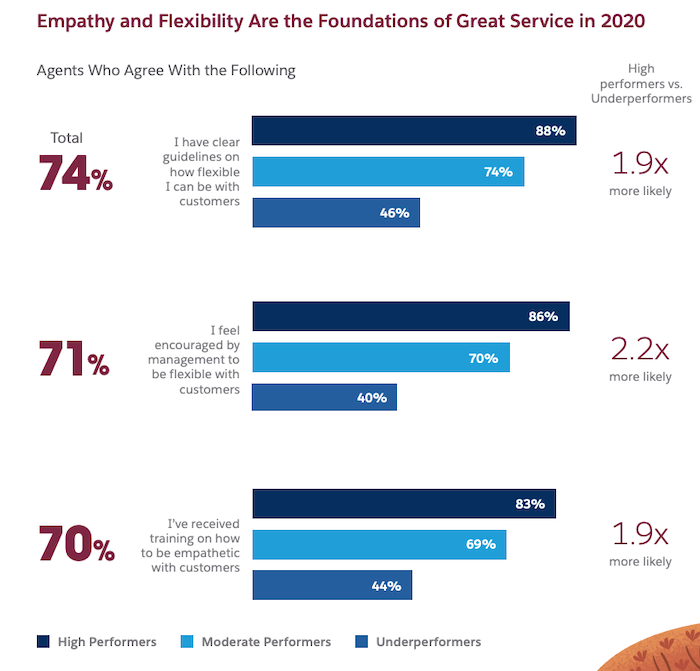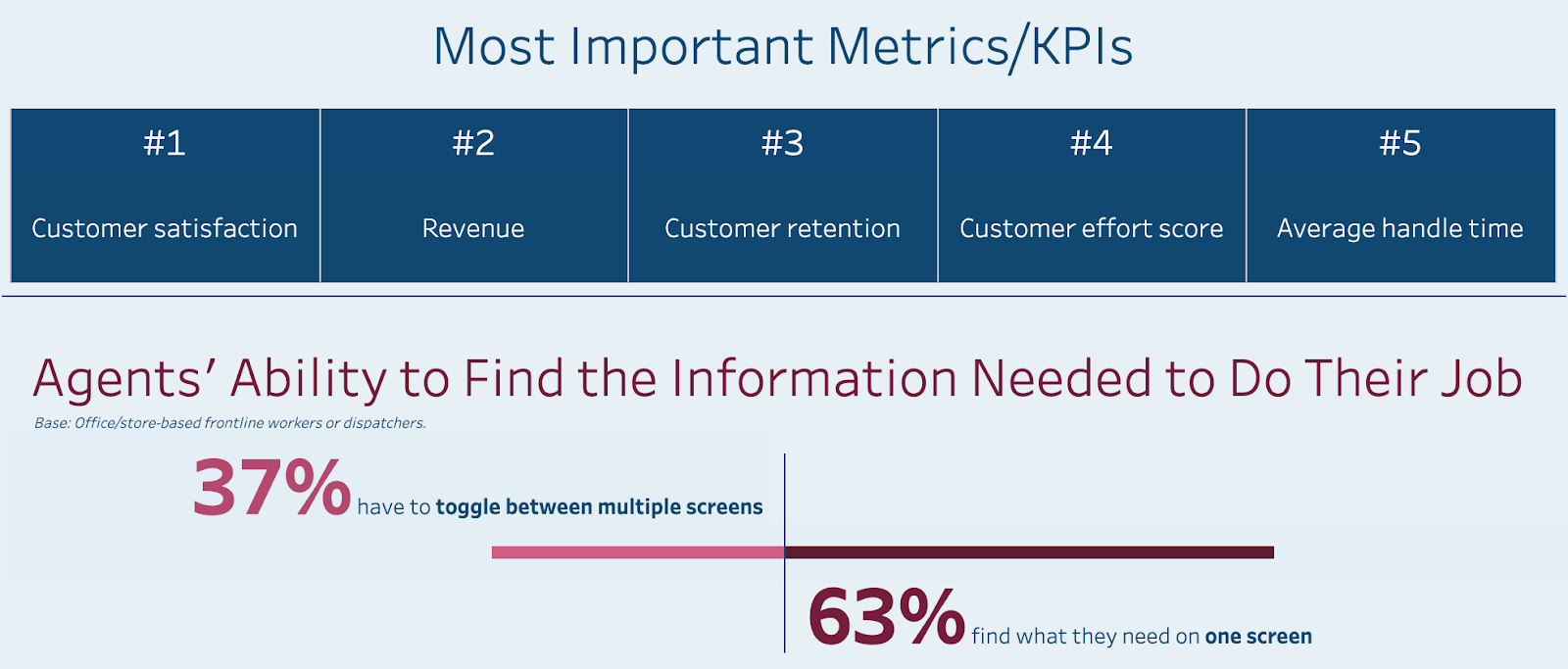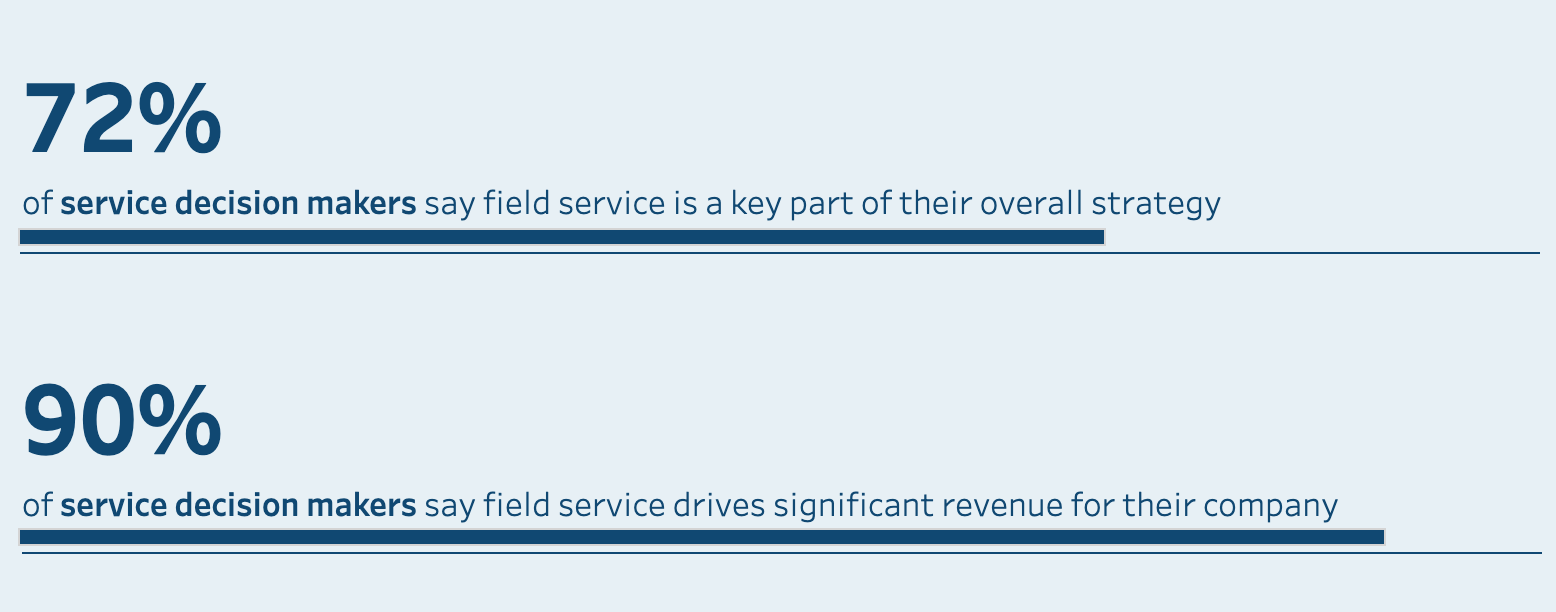For service agents in Poland, flexibility has unlocked a whole new way of providing excellent customer experiences.
In the wake of the pandemic, 84% of professionals in Poland changed their policies to help their service agents give more flexibility to their customers. This helps them hit their service KPIs faster and more efficiently.
According to the fourth State of Service report, 83% of Polish service teams shifted processes, and 82% invested in new service technology.
As we can see in the above figure, this is more or less in line with the 7,500 professionals around the world polled for this report.
So, why is there a growing focus on flexibility in customer service?
The power of customer service flexibility
We all know that successful organisations must set procedures and protocols for getting things done. The alternative, after all, would be something akin to chaos.
But rigidity has drawbacks. Just as rigid material can be brittle and snap under pressure, inflexible organisations can be floored when the unexpected strikes.
And over the past 12 months, we’ve seen a surplus of the unexpected.
There’s been plenty of pressure in the turmoil of the global pandemic. Service providers have experienced higher case volumes as anxious customers have tried to adapt to the new normal. And with offices and shops shut, customer service often became the only customer touchpoint for many brands.
So, decision makers at service organisations in Poland had to adapt and become more flexible in the way they assist customers and resolve service issues.
Globally, 88% of agents at high performing companies (those that rate their customer satisfaction as ‘excellent’) say they have clear guidelines on being flexible with customers. That’s nearly double the number of agents who say this at underperforming companies (who rate their satisfaction as ‘poor’).
Similarly, more than twice the number of agents at high performing companies say they’re encouraged by management to be flexible than those at underperforming companies.
Flexibility and empathy are prerequisites for excellent service in this age. Therefore, these qualities are crucial for all businesses.
Failure to be flexible and empathise adversely impacts the fundamentals service professionals track when assessing their performance – the KPIs of service.
Customer satisfaction directly correlates with company revenue
Before we explore how Polish companies can improve their service provision and build in greater flexibility, we should first briefly examine why they are doing this.
The link between revenue and customer satisfaction has been cemented in the minds of service providers in recent years. And this is demonstrated by the two most important KPIs for service organisations in Poland: customer satisfaction and revenue.
Customer retention is the third most important KPI, reflecting the fact that the longer and more harmonious a relationship is with a customer, the more beneficial it is for both parties.
Customer effort (the ease of a customer’s experience) and average handle time (how long it takes to resolve a service issue) are the fourth and fifth most important KPIs in Poland.
Knowledge is king for flexible and swift service solutions
Great customer service means resolving issues quickly while making it easy for customers to report any problems. To do this, service agents need finger-tip access to data and insights.
This is happening in Poland today. 63% of service agents in Poland can find all the information they need to do their job on just one screen (compared to 49% of agents globally).
And this requirement is becoming more and more important. The ways customers can communicate with service providers are diversifying. Channels now include everything from email and phone to mobile apps, social media, and online chat.
Service providers have to be flexible enough to communicate with customers on their terms. Most crucially, they need to ensure their agents have all the information they need to hand – whenever and however customers connect with them.
This is particularly important for agents in the field: in Poland, field service drives ‘significant revenue’ for 90% of organisations. With the right service technology, organisations can give their agents knowledge and flexibility – and see the knock-on effect on their customers.
Where service agents meet strategy
Customers – not an organisation’s processes and protocols – need to be at the centre of service provision.
This means service should be viewed as a central, strategic function in any modern business. And this is happening all over the world: 77% of service agents say their companies view them as customer advocates, and 78% say they’re viewed as brand ambassadors.
It pays to take this view.
Here are some global stats:
91% of customers say good service makes them more likely to repurchase.
80% say the experience a company provides is as important as its goods or services. 59% say the pandemic has raised their expectations when it comes to service.
As we’ve seen, flexibility and empathy are crucial attributes when it comes to providing excellent customer service. Having the right information at the right time helps fuel this flexibility and empathy.
For example, platforms like Service Cloud can give service agents all the data they need to engage with customers. They can access the customer data from anywhere in the world, helping organisations hit their service KPIs.
Read the full State of Service report to learn how agents in Poland (and around the world) are:
changing their strategies
overcoming their challenges
preparing for a successful future










